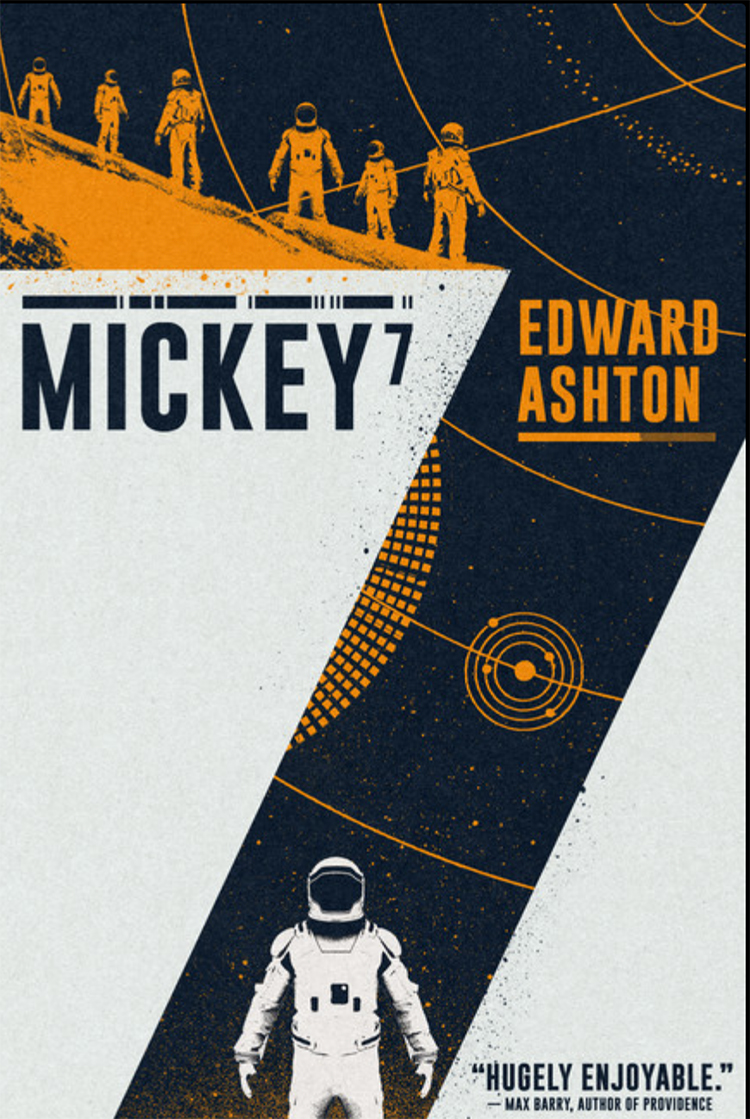The business of interstellar colonisation is a dangerous one in Edward Ashton’s Mickey7. No matter how good your robots and drones may be, sometimes you’ve got to send a man to do a human’s job. But what about when it’s a suicide mission? Who signs up for that? Meet Mickey. An expendable (no, not one of Sly Stallone’s gang) and recyclable employee who, when he dies, can be regenerated and his archived memories uploaded.
Mickey 7 has successfully completed six suicide missions during the galactic crossing to colonise the world of Niflheim. Now that the crew have landed, Mickey 7 wants to stay alive. The problem is that he’s currently missing, presumed dead and the folks back at base have already started cooking up Mickey 8. With two Mickeys, limited rations and hostile locals, things are getting worse for Mickey 7 and pretty soon he’ll have to kill himself to survive.
Written with riotous melancholy, Edward Ashton has produced a hilarious and thoughtful concept that will soon be adapted for the big screen by Academy Award-winning director Bong Joon-Ho (Snowpiercer, Okja, Parasite).
Written from the first-person perspective we discover what makes a dead-beat historian with bad debts agree to sign up to become immortal and, perhaps more interestingly, what the cost of that immortality really is. Indeed, where Mickey’s immortality differs is that he doesn’t remember his deaths, and his memories are only as good as his last upload. He must rely instead on his friends and colleagues to tell him how he died (so he can avoid repeating the mistakes). But when they’re the ones that sent him to die in the first place, trust becomes an uneasy truce…
Intelligent, heartfelt and very funny, Ashton’s gift for levity provides comfort and perspective as he takes subtle swipes at colonialism, prejudice and history. Mickey7 packs in the peril but still leaves you with the warm and fuzzies, offering space for questioning and hope for humanity.
